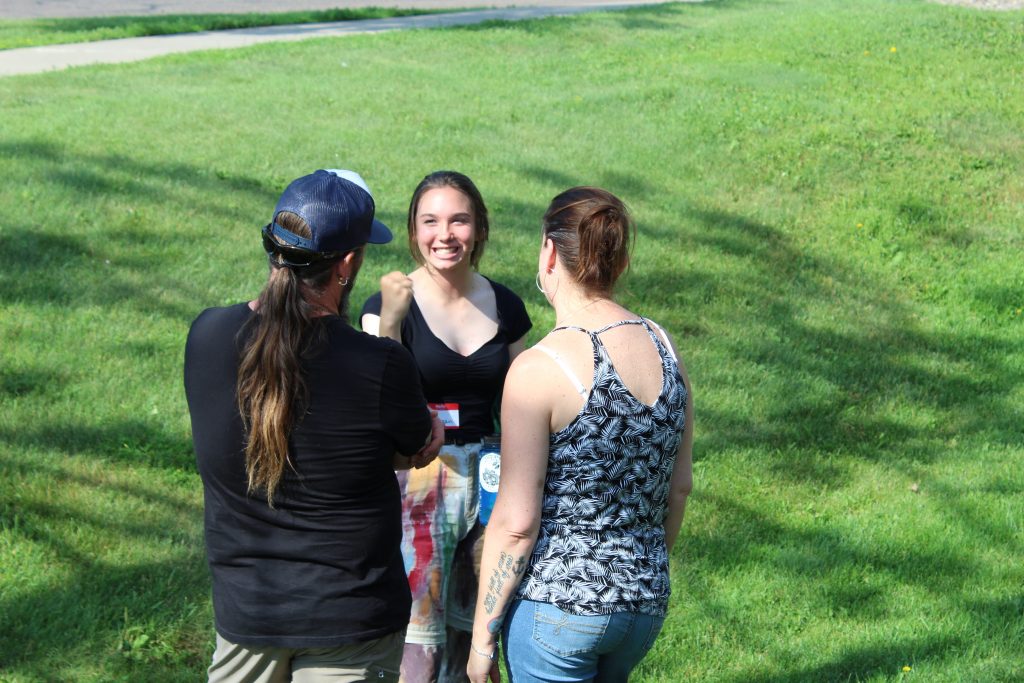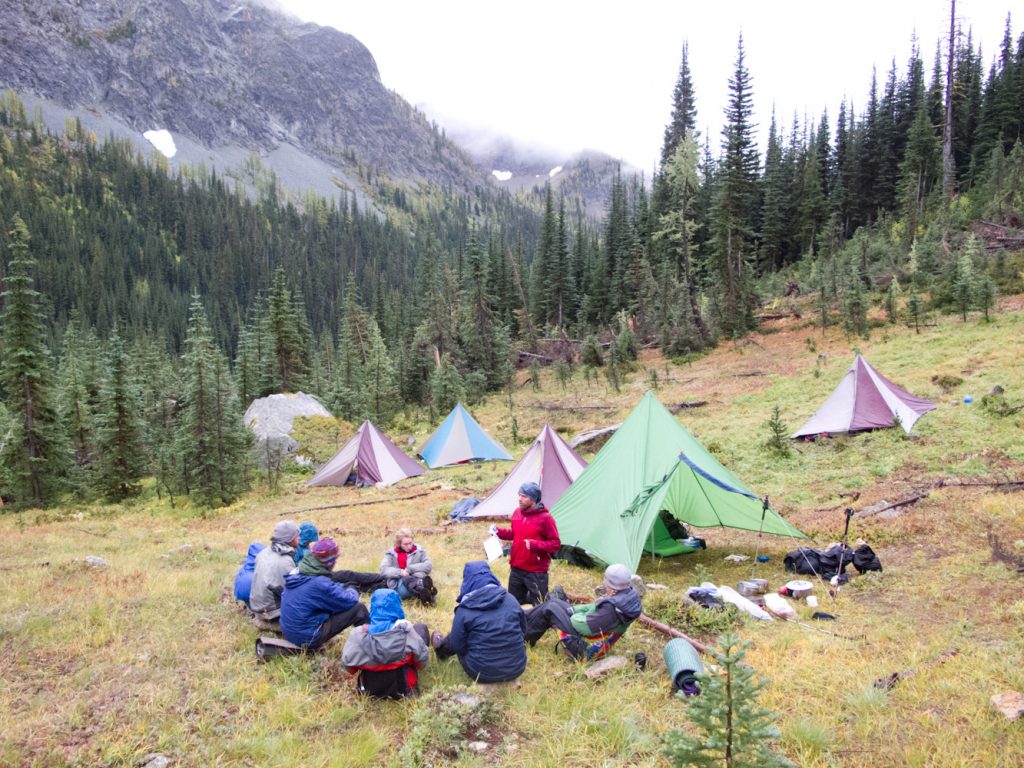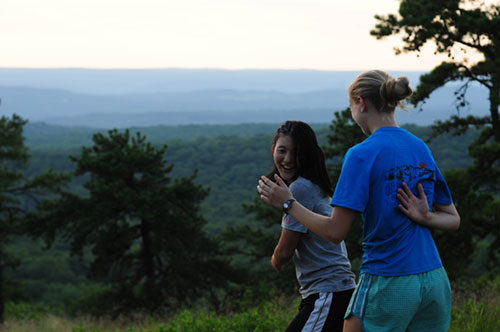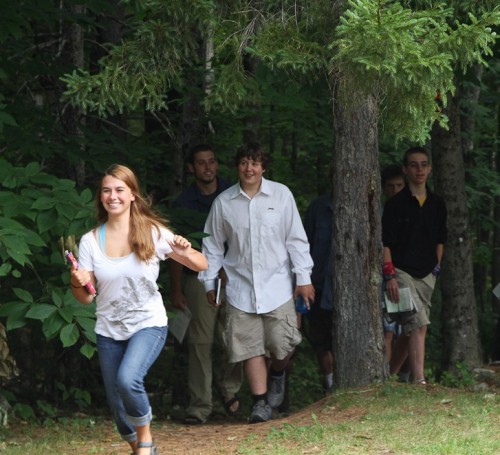Summer can present both opportunities and challenges to families and teenagers as they navigate the potential loss of routines and social time provided by school schedules. With extra time on their hands, and during this summer of a pandemic, there are fewer options to get outside of the home.
The following four practices can be started at any point this summer, and they can help you and your teen find success this summer season.
1. Share the Load
As Outward Bound Instructors, we often find ourselves delivering a message or lesson that parents and caregivers have been trying to teach for years. Due to our different voices and circumstances, we often have the bizarre experience of seeing behaviors change. This isn’t because we’re amazing educators, but simply because the old adage that “it takes a village” is certainly true. Other adults are needed to deliver certain messages to teens. Whether it’s learning to finally eat vegetables or facing a deep habit of lying, fresh voices can lead to progress in some well-worn territory.
As they search for their own identity, teens tend to push away the adults they live with, but that doesn’t mean they’ll reject every adult’s perspective. Reach out to mentors and support outside your immediate family. Interactions may need to take place over a screen or outside during this summer, but time spent with other caring adults will yield rewards a parent can’t achieve, through no fault of their own.

Reach out to mentors and support outside your immediate family. Photo by Holly Noble.
2. Build Structure
Structure includes both a daily and weekly routine, as well as expectations and consequences. Teens may chafe against structure, but we all benefit from some guidance and boundaries. We sometimes hear from our students that they’re not sure what’s expected of them, or that they’ve experienced inconsistent consequences. One time when they were caught smoking, they were grounded for a month, and another time, nothing happened. Consistency and follow-through will help both teens and adults know what happens next.
Routine doesn’t mean that every day needs to be the same, just that there is a norm that can now be deviated from. On an expedition, we often build in regular mealtimes, bedtimes and chores into the daily flow, writing them down where they can be referred back to when there are questions. Over time, as students prove their responsibility in managing their time, some structures can be relaxed. While many crews enjoy the opportunity to get creative, most stick with the schedule that they’ve come to know and expect. Without some of the requirements of wilderness travel, building structure at home may require offering some incentives and rewards to create buy-in from your teen.

as students prove their responsibility in managing their time, some structures can be relaxed. Photo by Joel Reid.
3. Present True Choices
Teens have a growing need for power and autonomy, and the best way to help them learn to meet this need in a healthy way is to allow them the opportunity to make decisions that will affect their lives. The choice between mac and cheese or spaghetti for dinner might seem like a step in the right direction, but teens are better than anyone at sniffing out insincerity.
Choice need not be the same as allowing them to do whatever they want. On an expedition, I know there are certain things none of us can control, like the weather, that strongly affect each day, and I know there are also factors I can’t allow students to control, like those related to safety. That leaves a remaining subset of aspects of the trip that I can offer to students. Their choices may not be my preference or may inconvenience me, but the trade-off is worth it when they feel ownership and agency. What aspects of life at home can you turn over to your teen to help in the decision-making process?

Teens have a growing need for power and autonomy. Allow them the opportunity to make decisions that will affect their lives.
4. Remember to Have Fun!
On one of the first courses I instructed, we promised the students free time if we got to the campsite early in the evening, before dinner needed to be prepared and the site set up. Because they were young teens, their brains lacked some of the forethought and sequencing skills to set them up for success. They never managed to get to the campsite early, always distracted by their own conversations, and we never gave them free time. This was a terrible plan. I’ve since learned that fun needs to be part of the plan.
Making time to relax and play together pays off with increased positive feelings on both sides of the relationship and greater productivity afterward. Besides, the fun times are what we all remember about the summer, not how many chores we got done or whether or not we completed a job application.

Making time to relax and play together pays off with increased positive feelings on both sides of the relationship and greater productivity afterward.
As you and your family embark on this journey of the summer together, take time to envision what it is you want your summer to be like. No one gets it right 100% of the time, but if we can all commit to coming back to Kurt Hahn’s mantra of “above all, compassion,” we’ll stay on the right track.
About the Author
Renee Igo was an Outward Bound student at age 15, and has been instructing wilderness expeditions for the Voyageur Outward Bound School for the past eight years. When not instructing, she holds a variety of other teaching positions and raises sheep in Maine.




